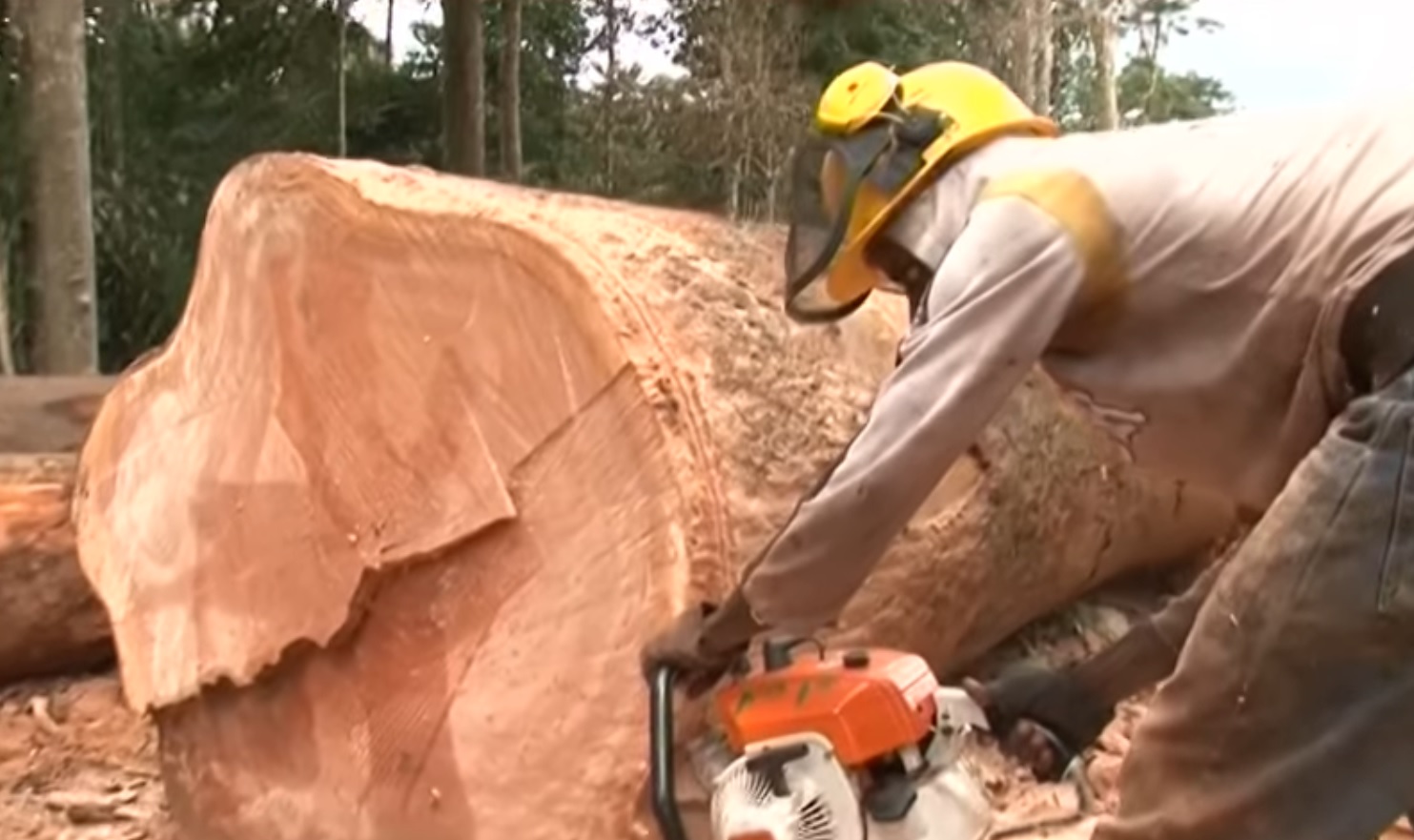

News | 03.12.2021
Last week, as reported in our editorial, the first elements of the planned methodology for Production Sharing (PS) were unveiled in Brazzaville during the XIVth VPA-Flegt CCM (Joint Implementation Committee).

Photo Credit : video "Développement durable, le défi mondial"
Provided for in the Forestry Code, the principle of production sharing will have to be the subject of a framework law, being understood that each sharing is the subject of a law adopted by parliament, as is the case for each oil concession. To draft this framework law, MEF hired the FRMI research firm for a six-month period to conduct a study on the production sharing regime and the prospects for the draft application texts of the Forestry Code.
General objective of the study
The general objective of the study was to respond to the challenges of the timber sector and to specify the modalities of application of the different articles of the new Forest Code related to production sharing as well as the organization of the production sharing principle.
The aim was to provide a clear definition of the concept of “production sharing" and an efficient and transparent methodology to provide strategic reflections and operational answers to managers and decision-makers at political and institutional levels.
On the basis of this fundamental objective, the reflection consisted in analyzing the expectations of the stakeholders in order to respond to the challenges posed by the current situation of the sector in Congo and in the region and to deploy a relevant strategic approach in the modalities implementation of the "Production Sharing" (PS).
Specific objectives of the study
The purpose of this study was to define all the implementation and monitoring modalities of the production sharing operation, to model the impacts for the State and the private sector of the scenarios and parameters of the PS as well as the implementation modalities in order to maximize the benefits, to guarantee the adherence and ensure the success of this strong innovation in Congo and in the Congo Basin, as well as to bring proposals and key elements allowing to draft future application texts describing the implementation of production sharing, and finally to propose a roadmap for its implementation.
Methodology
The methodology adopted consisted in the analysis of several scenarios and approaches that we believe are important to consider in the phases of reflection and design of a value chain to maximize the contribution of the sector to the national economy.
The study has been completed and the firm has submitted its deliverables and final report, which the private sector would like to be aware of in order to better participate in its implementation, as this initiative is an innovation that should be approached with caution.
Conclusions of the study
Based on the industrial vision, the consultants have proposed three founding principles to design the rules and modalities of Production Sharing:
In the end, starting from the production sharing in oil and after adaptation given the diversity of timber species, FRMI proposes two approaches, as well as the establishment of a specialized company to implement the PS.
Approach n°1 - Logyard scenario : Production sharing with Industrial Concessionaires and Sale to Non-concessionaires industrial on logyard
In this scenario, the industrial concessionaire manages the forest, harvests and transports on logyard the volumes destined to the industrial concessionaire's plant and to non-concessionaire industrials (via the State).
The State/Industrial Concessionaire production share on the "logyard" includes the 'Cost Log' corresponding to the Management/Operation costs.
The industrial concessionaire buys back the State's share (on the basis of a "logyard" Mercurial) for the needs of its plant, or even beyond according to the evolution of its activity, with deduction of its management and forestry expenses.
Finally, the State sells to non-concessionaire industrial / former industrial concessionaires on logyard with payment of management and forestry costs to the industrial concessionaire by the non-concessionaire / former industrial concessionaire.
Approach n°2 - 'SP' Scenario: Production Sharing 'standing' and Sale on logyard
This second scenario foresees a State/Industrial Concessionaire Production Sharing "On Foot", with "Cost Log" limited to forest management costs.
In this scenario, the industrial concessionaire buys ' standing ' from the State (Mercuriale 'SP') for the needs of its mill, and even beyond, depending on the evolution of its activity.
The industrial concessionaire exploits and transports the industrial concessionaire + State volumes to the logyard.
Finally, the State sells to the non-concessionaire/former industrial concessionaire (Mercuriale SP + the industrial concessionaire's logging charges) on the logyard with payment of the logging charges to the industrial concessionaire by the non-concessionaire industrial.
The National Forestry Company for Production Sharing (SNF-PDP)
The creation of a National Forestry Company for Production Sharing is planned, which will have the following missions:
Finally, a roadmap in 5 steps has been developed.